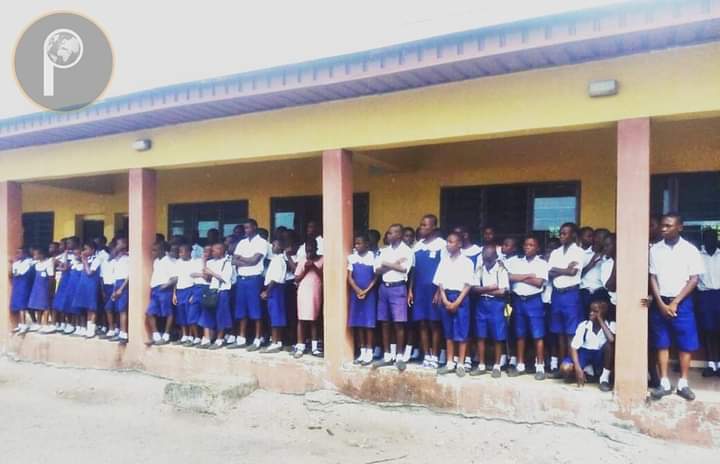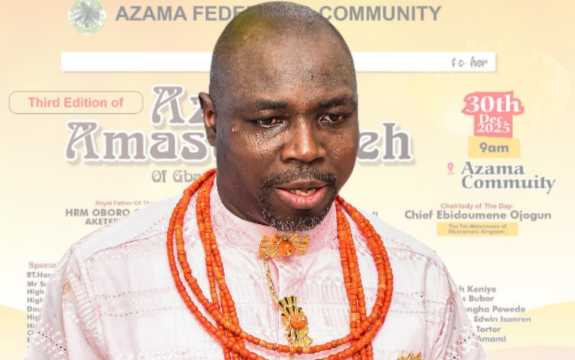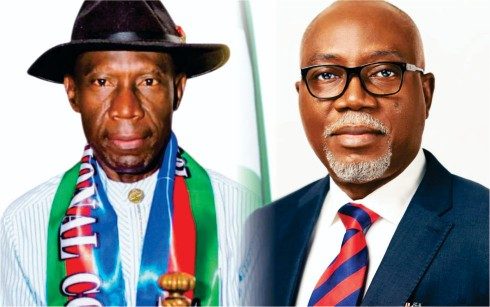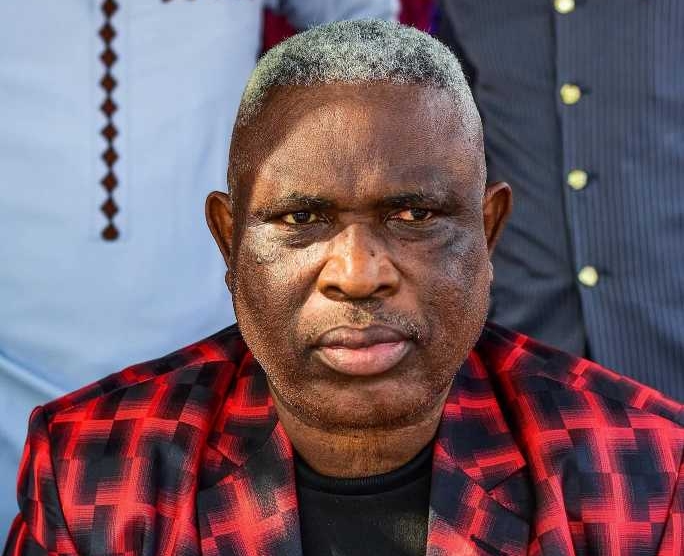EDUCATION: Delta Riverine Schools Where Community Members Recruit Support Teachers to Teach in Govt-Owned Schools By Abai Francis

Did you know that in most government-owned schools in the coastal settlements of Delta State, community leaders often engage community-support teachers to teach in the government schools due to the absenteeism of public teachers?
With the propagation of christianity by the missionaries in the late 18th and in early part of the 19th century, formal education found its way into colonial Nigeria. In the southern parts of the country, it was largely embraced by the natives who willingly enrolled their wards into schools established by missionaries with free education being dangled to entice them. And when eventually Nigeria gained independence on October 1, 1960, formal education has become very popular and was even seen as a requirement that qualifies one to occupy leadership positions within and outside government institutions.
Over the years, while the quality of formal education in Nigeria has greatly improved, unfortunately, such improvement has been very low for those residing in the coastal parts of the country, particularly in the Niger Delta region. Like most Nigerians, creek dwellers desire education for their wards in the belief that being educated increases the chances of their being successful in life. However, the access to such opportunity is beclouded by challenges that are greatly impacting negatively on quality education in the area.
One of such areas in the Niger Delta is in the Warri South-West local government area of Delta State in which sits an Ijaw coastal settlement in Gbaramatu Kingdom by the name of Kokodiagbene, host to the first boarding secondary school in the area. But while such feat would appear to indicate that students in the community would be basking in the euphoria of quality education, however, in reality, that is not the case, as lack of teachers remain a constant challenge.
A visit to the government-owned primary and secondary schools in the community, the Ebiabu Primary School 1 and the Kokodiagbene Secondary School, revealed that only about 20 to 30 per cent of recruited government teachers turn up in the classrooms to teach. Sadly, it is the same plight for most schools in other communities that make up the kingdom.
As a way of remedying the problem of the poor quality of education that the lack of teachers is posing to pupils and students alike, Kokodiagbene community leadership like others, took it upon themselves to employ support teachers to teach in the government schools as a way to bridge the gap created by the lack of teachers.
"Over the years there has been the issue of absenteeism of teachers in government-owned schools in the riverine areas" lamented Donatus Akpo Ukuli Esq., Chairman of Kokodiagbene Education Committee, when PENGlobal contacted him about the situation.
"That is a fact that cannot be denied. It is obvious, it is clear. The blind can see it, even the deaf can hear about it. Education is one of the basic things the government is expected to provide for its citizens, yet the Delta State government failed in that area," Ukuli Esq added.
However, the decision to employ support teachers in the government schools by community leaders seem recently to be posing a huge challenge to the community as regards salary payments. Asides salary payment, findings also shows that the community bears the burden of feeding students in the boarding schools, a project that is costing the community millions of naira on monthly basis.
For a community that is wholly dependent on revenues as host to the multinational American oil giant, Chevron Nigeria Limited (CNL), means that it is at the mercy of the oil firm's bonus payments which the community has been relying on for years, along with support from good spirited individuals.
But further investigation reveals that the shutdown of CNL's Jones Creek producing platform over a year ago occasioned by a spill incident in early 2021, has left the community leadership struggling to sustain the tempo of paying its support-staff in the government schools as well as feeding them.
Throwing more light on the situation, as regards the lack of teachers, Ukuli Esq. said, "If you go to the schools in the riverine area, you will see that by the time you go through the employment list of those teachers posted to those places, you will see that there are 10 or eight. But on ground you will see maybe two or one.
"Then the community will continue to employ teachers to do the work, to teach in the government-owned schools, which ought not to be so, because it is the responsibility of the government to provide education. The community took it upon itself to employ teachers to do that work.
"The sponsorship of the payment of those teachers is borne by the community which is a load. You can see that because the community cannot afford to pay teachers, they will owe the teachers four to five months. That is an aberration. It is unfair. As a human let’s think about it, you’re working, you’re married with a family, and you’ve not been paid your salaries for five to six months, how will you be able to cope?" Ukuli Esq. posed the question to no one in particular.
Professing a way out of the problem of lack of teachers, the education committee chairman said that the state government should prioritise the employment of indigenes that are resident in the riverine areas because findings show that those employed are not resident there, thereby leading to majority of teachers failing to turn up in the creeks.
“The best thing is for the government to employ teachers from the area to do the work the community employs teachers to do. It is the same teaching job they are going to do. Those that have NCE, those that are B.Sc. holders, let them be employed to do the job.”
A recent visit by the Kokodiagbene Education Committee to the Secretary of the Local Education Authority for primary schools, Mr. Omaghomi Tuoyo, and the chief inspector of education in charge of secondary schools, Mrs. Mercy Omagbemi, both in Warri South-West, indicated that the education authorities are aware of the absenteeism of teachers posted to riverine schools but are constrained with the riverine terrain which makes supervision quite a difficult task.
However, both promised to look into as well as address the issue while also supporting the opinion of the education committee chairman on the need to employ teachers that are from the area, who are already familiar with the riverine terrain, as one of the permanent solutions to ending the shortages of teachers created largely by absenteeism.
In the meantime, pupils and students in the affected schools in the kingdom continue to grapple with the inadequacy of teachers as well as effective learning aids such as a well-equipped laboratory for science students and inaccessibility to pipe borne water, among other needed infrastructures.
And as the issue of teachers absenteeism drags on, with the recent steps being taken by the community education committee, it is only hoped that the Delta State Government would rise up to the challenge by ensuring that the United Nations Sustainable Development Goals 4 of Quality Education is no longer a dream but a reality for pupils and students in the creeks, and to put an end to the abnormal practice of community becoming employers of labour for government-owned schools.
NOTE: This report was first published March 8, 2022, on PENGlobal Facebook page
#penglobalcommunity



